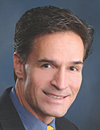
Mike Murphy
A strong message at the AHRI meeting came from Keith Coursin, president of DesertAire, who assumed the AHRI chairman post for 2009. Coursin said that the new Obama administration might very well accelerate standards and regulations that affect the HVACR industry. In my humble opinion, this is a very realistic expectation.
So, why should you care?
TRICKLE DOWN OBAMANOMICS
One of the offshoots of the change in central air conditioning efficiency standards, the 13 SEER baseline change of January 2006, has been a slow-down in sales. That’s right. It’s not just the result of the recent economic slow-down; it started when the Clinton administration decided late in its last term that the new minimum efficiency should be moved from the previously agreed upon 12 SEER to 13 SEER. Later, the Bush administration cited a procedural technicality, reversed the decision, and changed the SEER level back to 12. A court later upheld the previous ruling; the see-saw battle finally ended.Manufacturers in this industry planned for an orderly transition to 12 SEER. When that was bumped to 13 SEER in the 11th hour, many of those same manufacturers had to increase their blood pressure medications, and at the same time, this industry warned of a predictable market reaction among the consuming public - fewer sales of new energy-saving equipment.
The perfect storm of a housing meltdown and all its consequences, government agencies hell-bent on conserving energy, and more expensive high-efficiency solutions for customers, has led to fewer unit sales. That is called a downturn.
The next round of the National Appliance Energy Conservation Act (NAECA) standards for air conditioning and heat pump units is scheduled to be implemented in 2016. Discussions for that round of efficiency changes began in June 2008. No one knows just yet what the amount of the next increase will be, but the rumor mill says at least 14 SEER.
What if the next administration decides to push for an accelerated schedule? What if they decide to leapfrog the numbers again? It has happened before.
What if the phaseout of HCFC refrigerants were to be accelerated from the original Montreal Protocol objectives? Oh, never mind. That already happened in September 2007. That couldn’t happen again, could it?
You get the message.
Yes, it is a very realistic expectation to think that this industry will continually be pushed to elevate its game, both in efficiency and as responsible stewards of the environment. As it should be; and the industry is ready to take on those challenges, given proper timing.
WHAT'S IN IT FOR YOU
The implications for manufacturers, distributors, and contractors of rapidly changing standards and regulations that are foisted upon the industry by an overzealous administration, legislators, or Department of Energy (DOE), could well result in what are predictable market reactions. The consuming public, at times, can only afford so much improvement in technology. Yes, we can build it. But, will they be able to buy it?If enhanced efficiency standards result in fewer sales of more expensive technologies, then the goal of energy savings becomes an unreachable possibility for too many consumers. The DOE may suggest that technology becomes more affordable as economies of scale are reached. True, to a point. However, in more than two years since the 13 SEER increase went into effect, total unit sales are declining. That means consumers with old, inefficient units simply are not replacing them. I wonder why?
There are enough bearish expectations for the coming days, a recession, a housing slump, record unemployment - the list can make one weary. The HVACR industry is still in pretty good shape, but most everyone is buckling up for what they perceive to be a rough ride in 2009.
As the government considers ways to spend $700 billion while bailing out a variety of industries let us hope that it will let this one operate autonomously enough to never need an overhaul. The HVACR market will get itself back to equilibrium as long as we don’t get too much more help from Uncle Sam.
Murphy’s Law:Uncle Sam, go easy on the regs.
Publication date:12/08/2008
